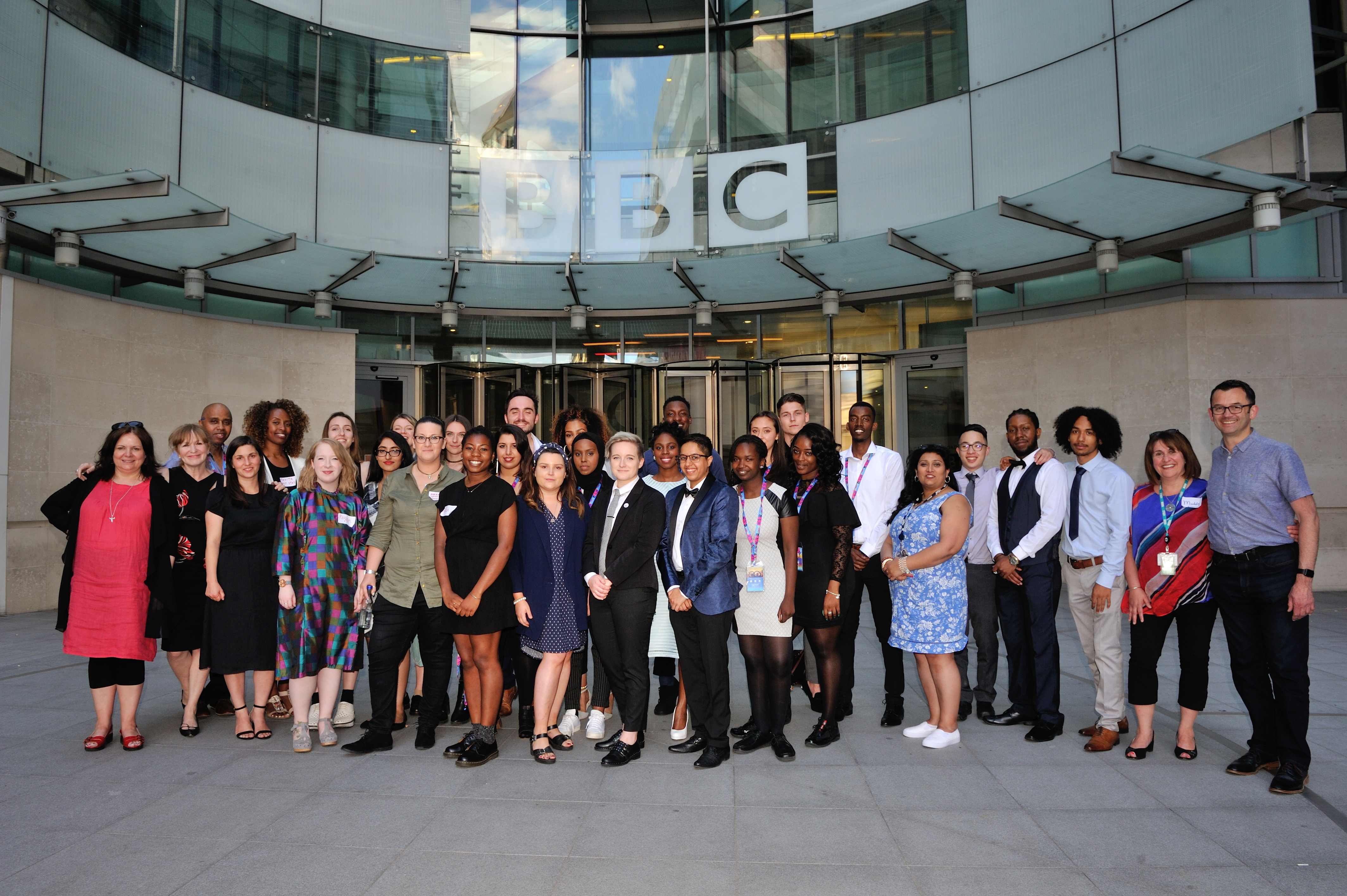
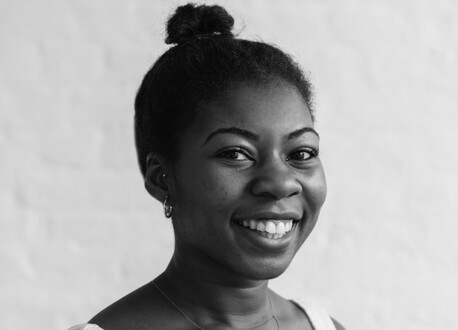
Maria believes that without MAMA Youth Project, she would still be eating Pizza for breakfast, lunch and dinner as an Events Coordinator at Pizza Pilgrims. Instead, at age 28, Maria Odufuye from East London is now an Assistant Script Editor on BBC’s distinguished drama EastEnders. Before breaking into the television industry, Maria was feeling unfulfilled and says that you should never settle and you should never give up.
What were you doing before you discovered MAMA Youth Project? Before MYP I was working at Pizza Pilgrims as an Events Coordinator, which I loved, but knew it wasn’t my calling. I wasn’t making enough of a difference and my voice wasn’t being heard.
Had you experienced any particular barriers in your life before joining the scheme?
The constant barrier I was faced with was the classic ‘you don’t have enough experience’. I’d graduated from uni 2-3 years prior to applying for MYP and between that had various internships and jobs whilst I went travelling. When I came back and was still applying for internships, I was confused by the constant rejections which stated ‘lack of experience’. How was I meant to progress if for an internship I need 3 years’ work experience in a similar role or environment!?
I’m sure I’m not the only person that has had this and it baffles me every time, but I’m glad MYP took a chance on me regardless of my lack of experience in the TV industry.
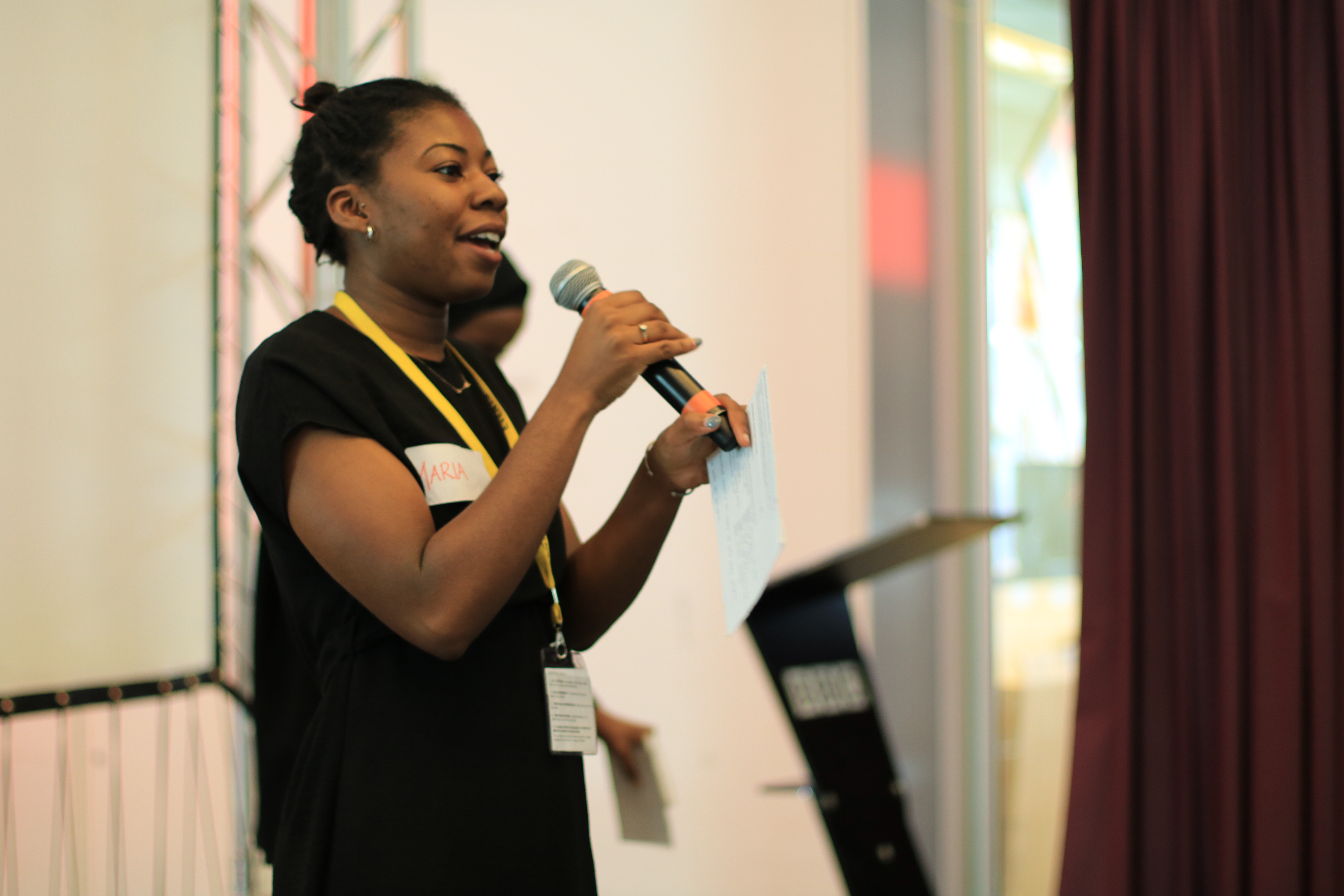
I didn’t know much about the roles on offer in the TV industry and for me this was a chance to discover which route would be best for me. As I’d studied Drama and Creative Writing, I knew I wanted to work in scripted and with writers, but I wasn’t sure which roles would allow me to do that.
How did you find out about the training scheme?
My friend Saidata was a Researcher a couple of years before me and recommended that I apply. If it wasn’t for her, I’d never have heard of the scheme. I wasn’t looking anymore and had kind of given up with applications. I’d settled with working in an industry that I knew wasn’t the one for me, but I thought it was the only option I had left.
What were the most positive and challenging parts of the training?
What wasn’t challenging! The long days, early mornings, lack of sleep, last minute changes … the list goes on! For me, I think to begin with I found it hard to just enjoy the process. I put so much pressure on being efficient and doing things right that I forgot that it’s also meant to be fun. However, Bob actually pointed out my efficiency as being scary and then I realised I can chill out and enjoy it whilst still being effective.
How would you describe your placement following the training?
I was eager to get stuck in and determined to make opportunities for myself. I had a really great mentor and the MYP team gave me sound advice which I used to take the initiative to make work for myself.
For example, if I heard a conversation about workload I offered to help, I networked with the crew and found out if I could be of use there, even though I was technically based in the production office. I even managed to get a couple of days in the development team of the show and write copy for the art department.
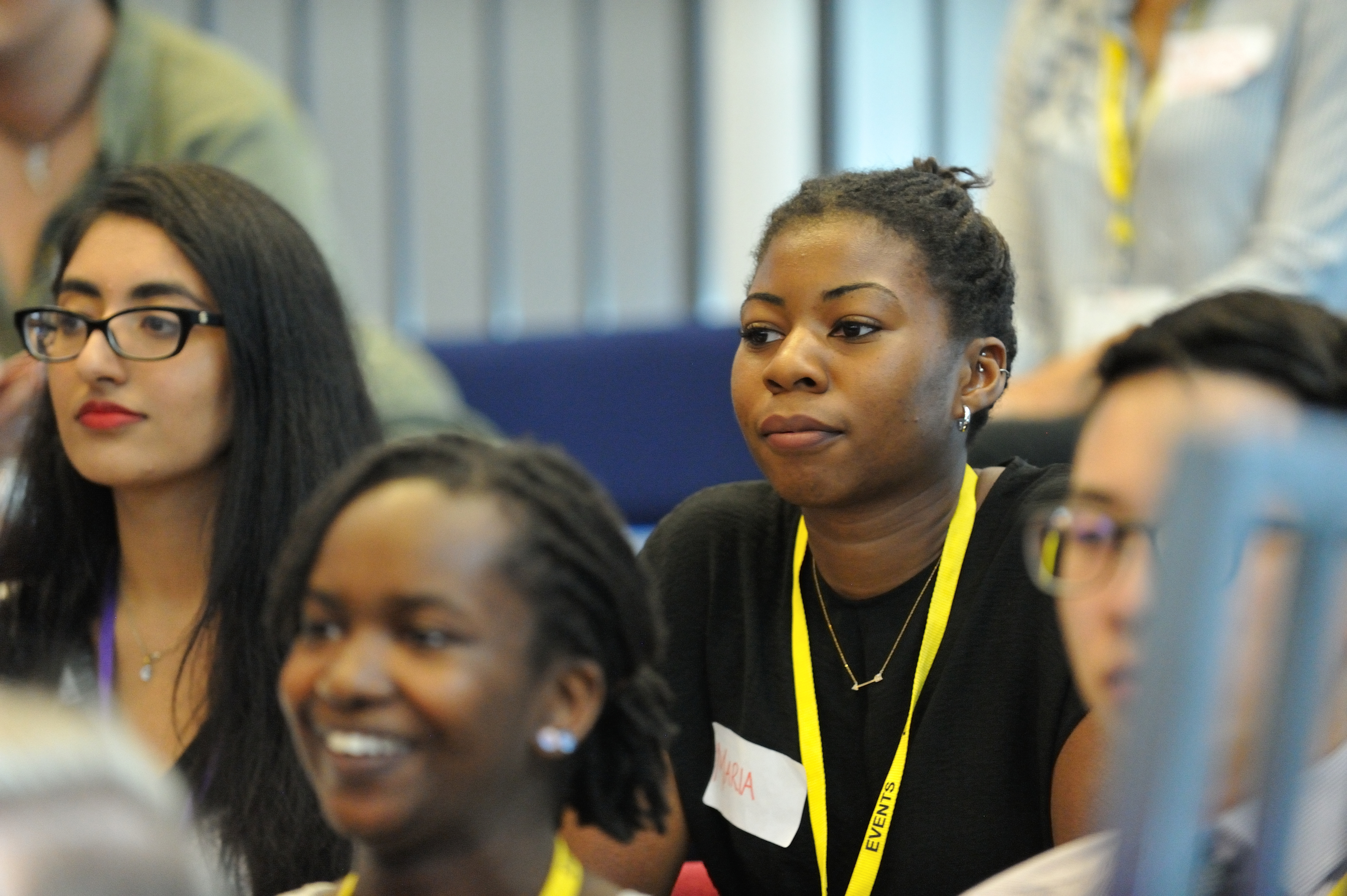 How long did it take you to secure your first role in the industry?
How long did it take you to secure your first role in the industry?
I was lucky that the Production Assistant left the show I was working on for my placement. I started working straight after my placement on that same show.
What is your current role and what does it involve?
My current role is Assistant Script Editor on EastEnders. The duties of an Assistant Editor include checking the scripts for both story and character continuity. As the only ASE to the Script Editors, it’s my responsibility to help them with collating and delivering written and verbal notes. I recently left a Development Assistant role at Clerkenwell Films and that involved reading and working with both new and seasoned writers to develop scripts for both original series and book adaptations. I also worked on the BBC writers’ academies, collaborating with a new writer to develop and produce a treatment in addition to writing a full pilot episode. The role was really varied and I would get to go to showcases and readings, take notes at development meetings, as well as bring ideas. I’d be liaising with agents, writers and directors. The development assistant role is a great way to learn the process from idea conception to screen.
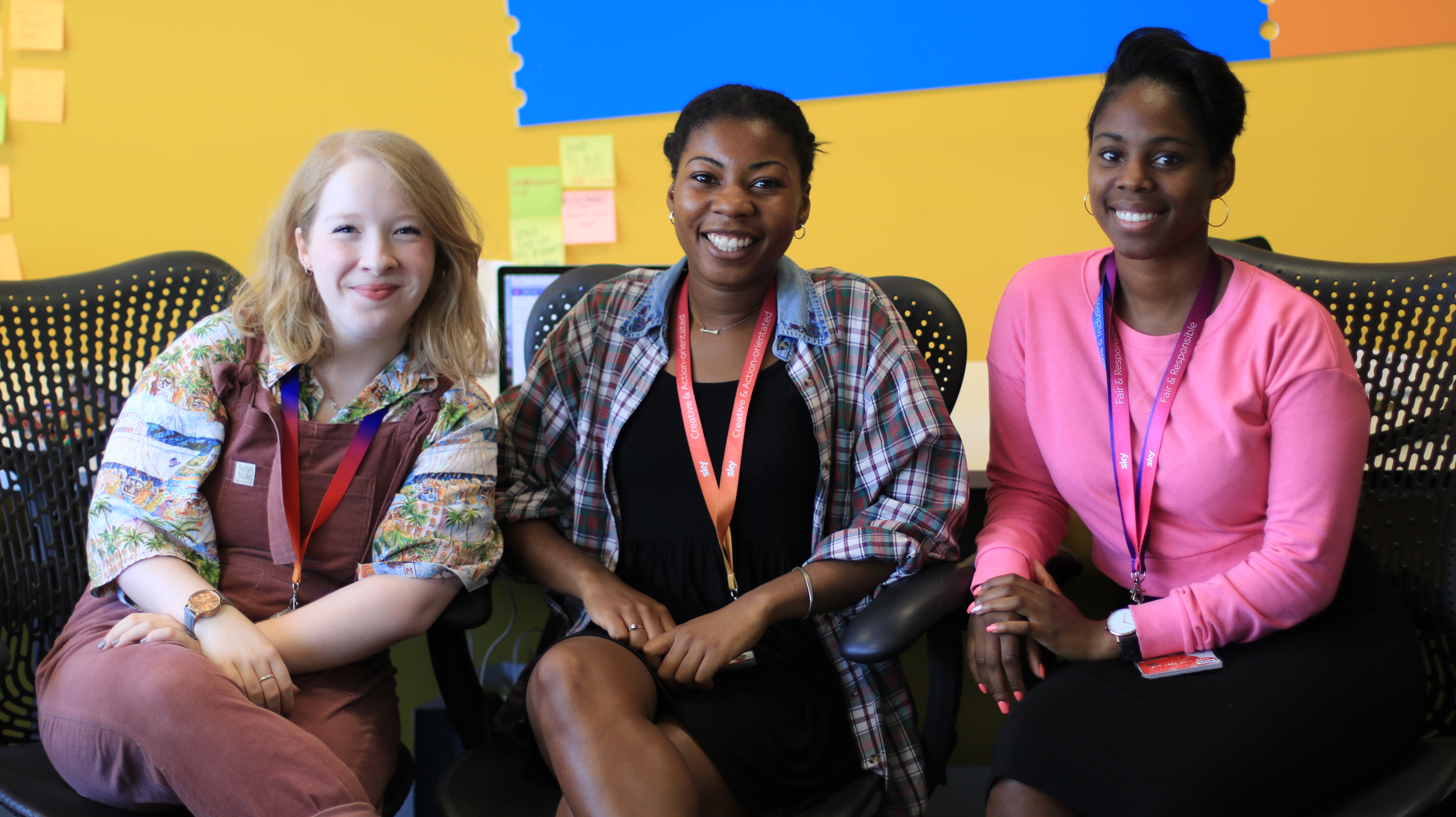
Simply put – don’t settle and don’t give up.
Can you describe the personal impact of MAMA Youth on your life and career journey?
If I hadn’t done MYP I’d still be working at Pizza Pilgrims having pizza for lunch and dinner, organising events for people that don’t care about what I think or have to say and while I don’t think I’d feel unhappy, I’d definitely feel unfulfilled. Life lesson from MYP … that I have a voice and I should use it and what better way than through storytelling. Career lesson from MYP … be early. Work hard, but also play hard. We work in TV, we’re not doing brain surgery – we can make mistakes, but we won’t make the same one twice.
How do your friends and family feel about your success?
I’m born and raised in East London and have a huge and very close family who also live in the same area, so you can only imagine how my family feel about the fact that I’m working on Albert Square. My success is our success.
In your opinion why is it important that MAMA Youth exists as a charity?
MYP is needed because they take a chance on the underdogs, us lot who often get forgotten about because we ‘lack experience’, are from working class backgrounds, ethnic minorities or have a disability. How can we tell authentic stories on TV without including the people who’ve lived through them?